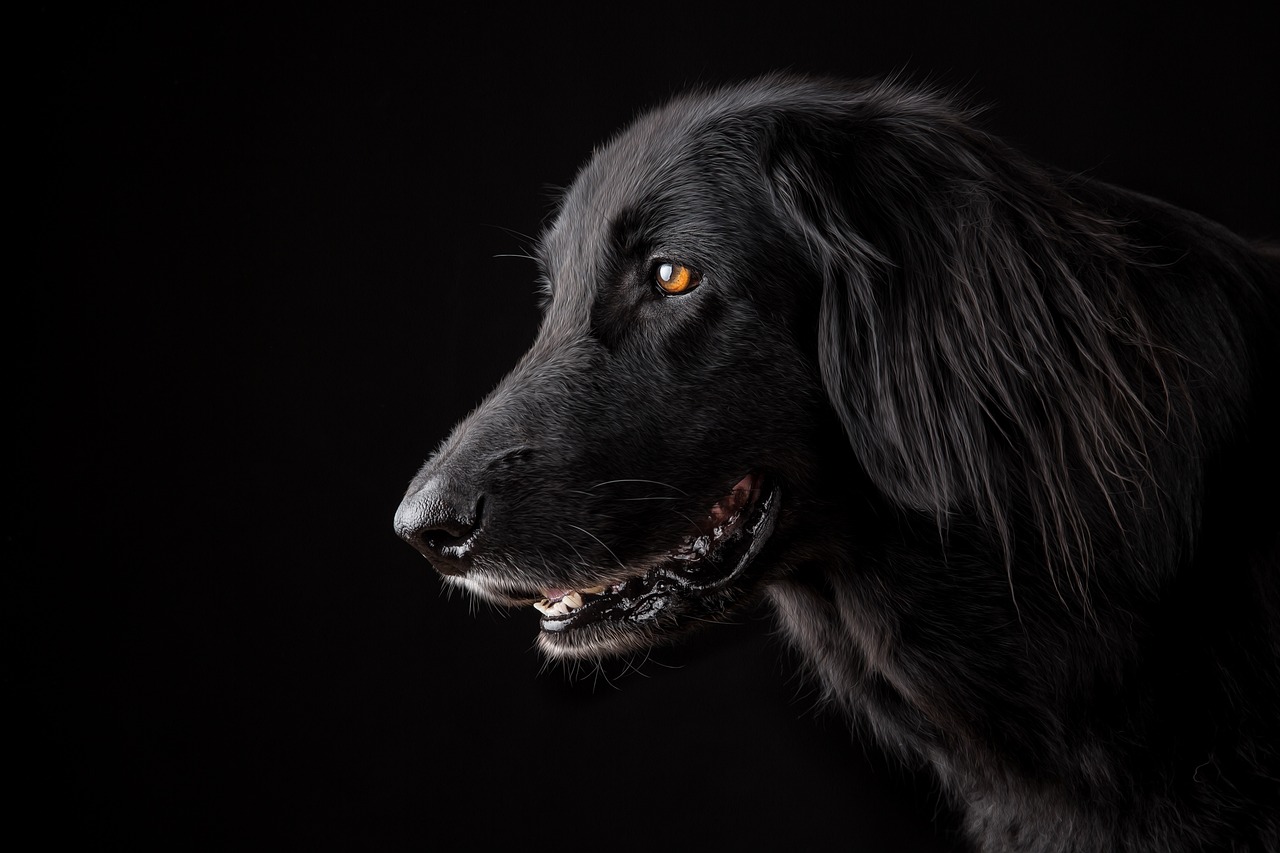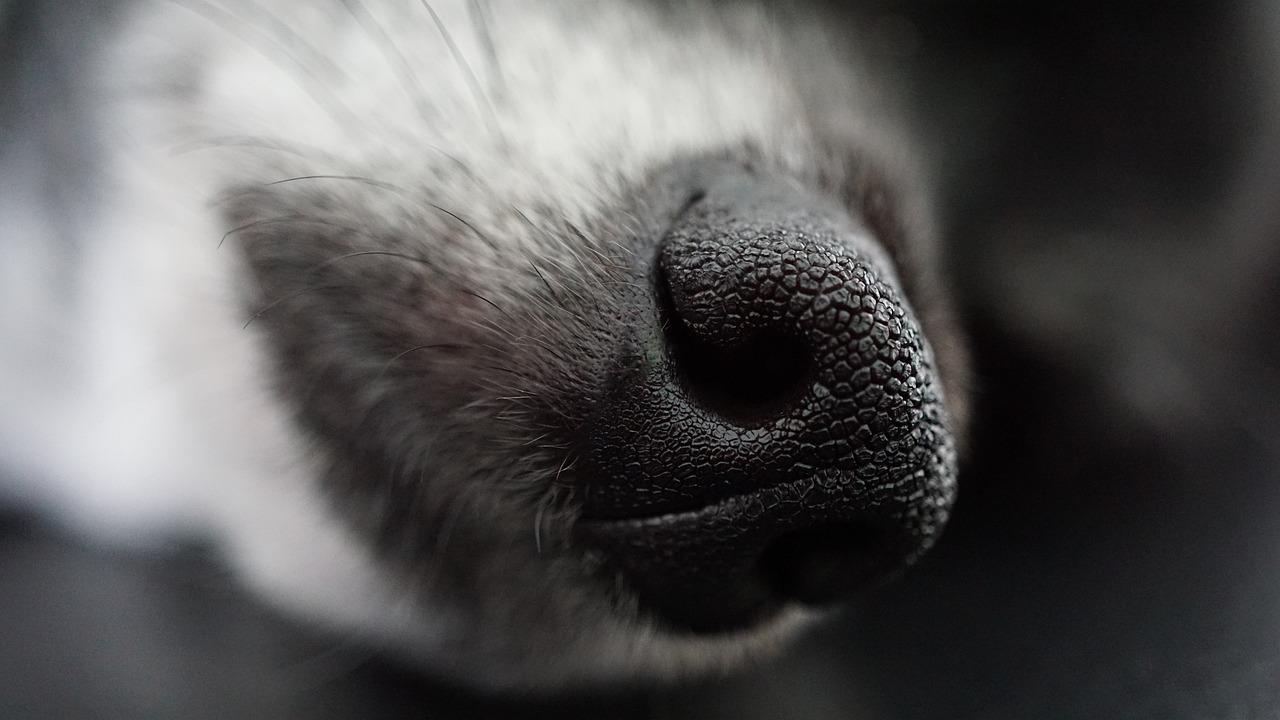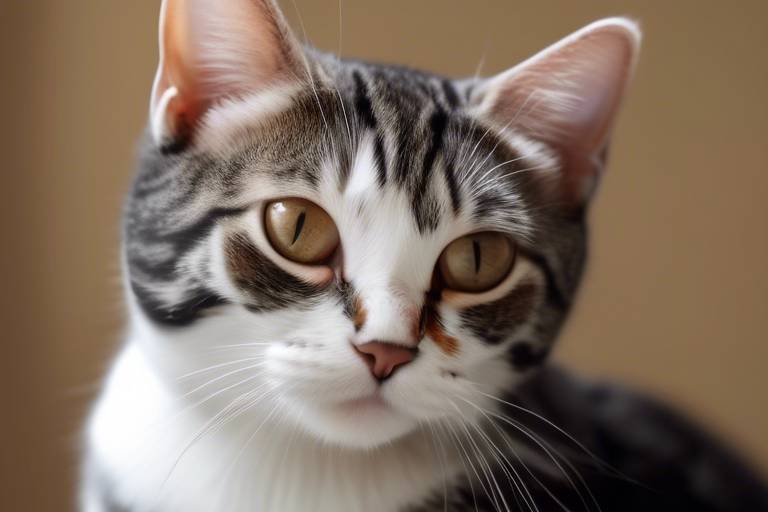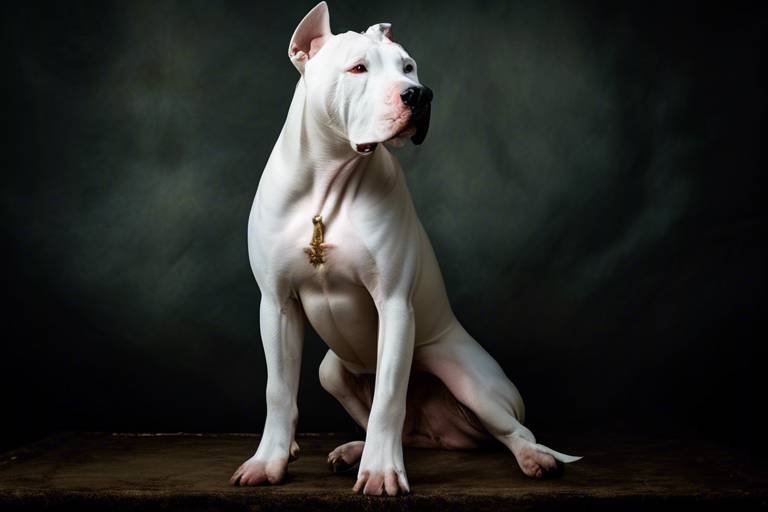The Gentle Nature of the Pointer
When you think of a dog that embodies gentleness and affection, the Pointer breed often comes to mind. These dogs are not just pets; they are beloved family members who bring joy and warmth into our lives. With their sleek bodies, expressive eyes, and a natural instinct for companionship, Pointers have captured the hearts of many dog lovers around the world. But what is it about these dogs that makes them so special? Let's dive into the world of Pointers and explore their temperament, characteristics, and care requirements.
Pointers are often described as having a friendly and gentle disposition. They thrive on human interaction and are known for their loyalty and intelligence. This breed is particularly sociable, which means they get along well with both people and other animals. Imagine a dog that greets you at the door with a wagging tail and a joyful bark, ready to share in your day. That’s the Pointer for you! Their affectionate nature makes them excellent companions for families, singles, and seniors alike.
One of the most fascinating aspects of Pointers is their inherent playfulness. They have an almost childlike enthusiasm that can brighten even the gloomiest of days. Whether it’s a game of fetch in the backyard or a long walk in the park, Pointers are always up for some fun. Their love for activity not only helps keep them physically fit but also strengthens the bond they share with their human companions. After all, who doesn’t love a dog that can turn an ordinary day into an adventure?
However, owning a Pointer comes with its responsibilities. It’s important to understand their needs to ensure they remain happy and healthy. Regular exercise is crucial, as these dogs are full of energy and require daily physical activity to thrive. Additionally, they benefit from mental stimulation, which can be achieved through training and interactive games. Keeping a Pointer engaged is essential for their overall well-being, as a bored Pointer can lead to destructive behaviors.
In summary, the Pointer breed is a wonderful combination of affection, intelligence, and playfulness. Their gentle nature makes them ideal family pets, while their energetic spirit ensures that life with a Pointer is never dull. As we continue to explore their training, health considerations, and care, it becomes clear that these dogs deserve all the love and attention we can give them. So, are you ready to learn more about how to care for these gentle giants?
- What is the average lifespan of a Pointer?
Pointers typically live between 12 to 15 years, depending on their health and care. - Do Pointers require a lot of exercise?
Yes, Pointers are high-energy dogs that need regular exercise to stay healthy and happy. - Are Pointers good with children?
Absolutely! Pointers are known for their gentle nature and often form strong bonds with children. - How often should I take my Pointer to the vet?
Routine check-ups are recommended at least once a year, but more frequent visits may be necessary for older dogs.

Understanding Pointer Temperament
This article explores the temperament, characteristics, and care of Pointer dogs, highlighting their gentle and affectionate nature. Learn how these dogs excel as companions and family pets.
Pointers are known for their friendly and gentle disposition, making them a popular choice among dog lovers. Their temperament is characterized by an innate sociability that allows them to thrive in family environments. These dogs are not just pets; they become cherished family members. Their loyalty is unwavering, and they often form strong bonds with their human companions. Imagine coming home after a long day, only to be greeted by a wagging tail and a joyful bark—that’s the magic of having a Pointer by your side!
One of the most remarkable traits of Pointers is their intelligence. They are quick learners, eager to please, and always up for a challenge. Whether it's mastering a new trick or participating in agility training, their minds are as active as their bodies. This intelligence, however, requires responsible ownership; without proper mental stimulation, they can become bored and develop undesirable behaviors. So, how do you keep a Pointer engaged? It’s simple! Incorporating a mix of physical and mental activities into their daily routine can keep them happily occupied.
Let’s break down some key aspects of their temperament:
- Sociability: Pointers thrive on social interaction. They enjoy being around people and other animals, making them ideal for families or active individuals.
- Loyalty: Once a Pointer forms a bond, they are incredibly loyal and protective of their loved ones.
- Intelligence: Their quick learning ability makes them suitable for various activities, from obedience training to dog sports.
Additionally, Pointers are known for their gentle nature. They possess a natural instinct to be kind and affectionate, which is evident in their interactions with children and other pets. This gentle demeanor is not just a personality trait; it’s a significant factor that makes them fantastic family dogs. They tend to be patient and tolerant, which is essential when dealing with the unpredictable energy of young children.
However, it’s important to remember that, like any breed, Pointers can have their quirks. Some may exhibit a stubborn streak, especially if they sense that their owners are not confident or consistent in training. This is where the balance of love and discipline comes into play. Establishing clear boundaries and expectations from an early age will help shape a well-mannered companion.
In summary, the temperament of Pointers is a beautiful blend of affection, intelligence, and gentleness. They are social creatures that thrive on interaction and companionship, making them ideal for families and individuals alike. Understanding their needs and characteristics is the first step toward building a lasting relationship with these wonderful dogs.
Here are some common questions about Pointer temperament:
- Are Pointers good with children? Yes, Pointers are known for their gentle and patient nature, making them great companions for kids.
- How much exercise do Pointers need? Pointers are energetic dogs that require regular exercise, ideally at least an hour a day.
- Do Pointers get along with other pets? Generally, Pointers are sociable and can get along well with other pets, especially if socialized early.

Training Techniques for Pointers
Training a Pointer can be an incredibly rewarding experience, not just for the dog but for the owner as well. These dogs are known for their intelligence and eagerness to please, making them highly trainable. However, it's essential to use the right techniques to harness their energy and enthusiasm effectively. The key to successful training lies in positive reinforcement. This method encourages good behavior by rewarding your Pointer with treats, praise, or playtime whenever they follow commands or exhibit desirable actions. Imagine teaching your dog to sit by rewarding them with their favorite toy; it’s a win-win situation!
Consistency is another crucial factor in training Pointers. Dogs thrive on routine, and establishing a clear set of commands and rules will help your Pointer understand what is expected of them. For instance, if you want your Pointer to learn to stay, it’s vital to use the same command every time you practice. Confusion can arise if you switch commands or tone, leading to frustration for both you and your furry friend. So, pick a command, stick to it, and watch your Pointer flourish!
One effective way to reinforce training is through the use of interactive games. Pointers love to engage in activities that challenge their minds and bodies. Incorporating games like fetch or hide-and-seek into your training sessions can make learning fun and exciting. Not only does this keep your Pointer physically active, but it also strengthens your bond. Remember, a tired dog is a happy dog, so mixing training with playtime can lead to better learning outcomes.
Socialization is a vital part of training for Pointers. Early exposure to various environments, people, and other animals helps them develop their gentle nature and adaptability. Think of it this way: just like humans, dogs also need to learn how to interact in different social settings. Taking your Pointer to parks, pet-friendly cafes, or even doggy playdates can greatly enhance their social skills. The more experiences they have, the more comfortable and confident they will be in different situations.
When it comes to training, you might wonder whether to enroll your Pointer in group classes or opt for individual training sessions. Both approaches have their unique benefits. Group classes offer a fantastic opportunity for your Pointer to socialize with other dogs and learn in a dynamic environment. They can observe and mimic the behavior of their peers, which is invaluable for their development. On the other hand, individual training allows for a more personalized approach, focusing specifically on your Pointer's needs and challenges. It’s essential to weigh these options based on your dog’s temperament and your training goals.
Like any breed, Pointers may face specific training challenges. Some common issues include distractions, stubbornness, or even excessive excitement. If your Pointer struggles to focus during training sessions, try to minimize distractions by choosing a quiet space. Incorporating short, frequent training sessions can also help maintain their attention span. If you encounter stubborn behavior, remember that patience is key. Celebrate small victories and continue to encourage your Pointer with positive reinforcement. With time and practice, your Pointer will overcome these hurdles!
In summary, training Pointers requires a mix of positive reinforcement, consistency, and socialization. By utilizing engaging methods and being patient, you’ll not only teach your Pointer essential commands but also foster a loving and trusting relationship that will last a lifetime. So grab those treats, get ready for some fun, and start building a strong foundation for your Pointer's training journey!
- What is the best age to start training my Pointer? It's ideal to start training as early as possible, usually around 8 weeks old, to instill good habits early on.
- How long should training sessions be? Keep training sessions short and engaging, ideally around 5 to 10 minutes, to maintain your Pointer's attention.
- Can I train my Pointer at home? Absolutely! Home training can be very effective, especially when combined with socialization opportunities outside.
Socialization Importance
When it comes to raising a Pointer, socialization is not just a nice-to-have; it's a must! These dogs are naturally friendly and affectionate, but without proper exposure to different environments, people, and experiences, their innate qualities may not fully blossom. Think of socialization as the foundation of a beautiful house; without it, everything else can crumble. Early socialization helps Pointers develop into well-rounded companions who are not only comfortable around other animals but also thrive in various social settings.
Imagine taking your Pointer to a bustling park for the first time. The sights, sounds, and smells can be overwhelming! However, if your dog has been socialized from a young age, they’ll approach this new experience with curiosity rather than fear. This adaptability is crucial, as it allows them to navigate the world confidently. A well-socialized Pointer is more likely to be friendly with strangers, playful with other dogs, and less prone to anxiety in unfamiliar situations.
Socialization should ideally start when your Pointer is a puppy, but it’s never too late to begin! Here are some key aspects to consider:
- Exposure to Different Environments: Taking your Pointer to various places—like parks, stores, and even public transport—can help them become accustomed to different sights and sounds.
- Interaction with Other Dogs: Arranging playdates with other dogs can teach your Pointer how to communicate and play appropriately.
- Meeting New People: Encourage your friends and family to interact with your Pointer. This will help them become friendly and approachable.
Moreover, socialization isn’t just about exposure; it’s about positive experiences. Each interaction should be a pleasant one, filled with praise and rewards. This helps your Pointer associate new experiences with positivity, making them more eager to engage with the world around them.
In summary, the importance of socialization for Pointers cannot be overstated. It lays the groundwork for their behavior, helping them grow into the affectionate and gentle companions we all adore. So, whether your Pointer is a sprightly puppy or a mature adult, make it a point to incorporate socialization into their routine. After all, a well-socialized Pointer is not just a happier dog but also a more harmonious member of your family!
Group Classes vs. Individual Training
When it comes to training your Pointer, you may find yourself weighing the benefits of group classes against the advantages of individual training. Each method has its unique perks and can cater to different needs, so let's dive into what makes each approach special. Group classes are fantastic for fostering a sense of community. Imagine your Pointer surrounded by other dogs, each wagging their tails and soaking up the social atmosphere. This interaction not only aids in teaching your dog to behave around other pets but also helps them learn from observing their peers. It’s a bit like attending a school where everyone learns together, sharing experiences and growing as a pack.
On the other hand, individual training offers a more personalized experience. Think of it as a one-on-one tutoring session where the trainer can focus solely on your Pointer's unique traits and challenges. This method allows for tailored training sessions that can adapt to your dog’s specific needs and pace. If your Pointer has particular behavioral quirks or requires extra attention to grasp certain commands, individual training can be incredibly beneficial. You can dive deeper into specific skills without the distractions that come with a group setting.
However, it’s important to recognize that both methods can complement each other beautifully. You might start with group classes to build foundational skills and then transition to individual sessions to refine those skills further. This hybrid approach can provide the best of both worlds, ensuring your Pointer not only learns essential commands but also develops the social skills necessary for interacting with other dogs.
To help you decide which training method suits you and your Pointer best, here’s a quick comparison:
| Aspect | Group Classes | Individual Training |
|---|---|---|
| Sociability | Excellent for socialization with other dogs | Limited interaction with other pets |
| Personalized Attention | Less personalized; focuses on group dynamics | Highly tailored to individual needs |
| Cost | Generally more affordable | Can be more expensive due to one-on-one time |
| Learning Environment | Dynamic and stimulating | Calm and focused |
Ultimately, the choice between group classes and individual training should align with your Pointer's personality and your training goals. If your dog thrives in social settings, group classes might be the way to go. However, if they need more focused guidance, individual training could be more effective. No matter which route you choose, consistency and patience are key in shaping your Pointer into a well-mannered and loving companion.
- What age should I start training my Pointer? It's best to start training as early as possible, ideally when they are puppies, to instill good habits from a young age.
- How long should training sessions last? Training sessions should be kept short and engaging, typically around 10-15 minutes for puppies and up to 30 minutes for adult dogs.
- Can I train my Pointer at home? Yes, home training can be effective, especially when combined with socialization opportunities in group classes.
- What should I do if my Pointer is not responding to training? Patience is key. Consider consulting a professional trainer for additional strategies tailored to your dog's needs.
Common Training Challenges
Training a Pointer can be a rewarding experience, but it’s not without its challenges. These dogs are incredibly intelligent and eager to please, yet their high energy levels can sometimes lead to distractions during training sessions. One common issue is their tendency to become easily bored, which can result in a lack of focus. Imagine trying to teach a child a lesson while they are surrounded by toys; it’s tough! Similarly, Pointers need engaging and varied training techniques to keep their attention.
Another challenge is their strong prey drive. Pointers were bred for hunting, and their instinct to chase smaller animals can interfere with obedience training. This means that while you’re trying to teach them to sit or stay, a squirrel darting by could send them off on a wild chase! To combat this, it’s essential to incorporate recall training early on. Teaching them to respond to commands amidst distractions is crucial for a well-behaved Pointer.
Moreover, Pointers can sometimes show stubbornness, especially if they feel that the training is repetitive or not stimulating enough. It’s important to remember that consistency is key. Using positive reinforcement techniques, such as treats or praise, can help overcome this hurdle. For instance, rewarding them immediately after they successfully follow a command creates a positive association, making them more likely to repeat the behavior.
Here are some common training challenges that Pointer owners may face:
- Distraction by Environment: Pointers are naturally curious and may get distracted by sights and sounds around them.
- High Energy Levels: Their need for physical activity can sometimes overshadow their training sessions.
- Stubbornness: Occasionally, Pointers may resist commands if they find the training mundane.
To effectively tackle these challenges, it’s essential to create a fun and engaging training environment. Incorporating playtime into training sessions can help maintain their interest. For example, using toys or engaging in games like fetch can turn a training session into a fun activity, making it easier for them to learn. Additionally, varying the training locations can also help keep their attention, as new environments can stimulate their senses and make the training feel fresh.
In conclusion, while training a Pointer can present some challenges, understanding their unique traits and needs can lead to successful outcomes. With patience, consistency, and a bit of creativity, you can turn those challenges into triumphs, forging a strong bond with your furry friend along the way.
Q: How long does it take to train a Pointer?
A: Training duration varies based on the individual dog and the consistency of training. Typically, basic commands can take a few weeks to establish.
Q: Are Pointers easy to train?
A: Yes, Pointers are intelligent and eager to please, making them relatively easy to train with the right techniques.
Q: What is the best way to socialize a Pointer?
A: Gradual exposure to different environments, people, and other animals from an early age helps in developing a well-adjusted Pointer.
Q: How much exercise do Pointers need?
A: Pointers require a significant amount of exercise, ideally at least an hour of physical activity each day to keep them healthy and happy.
Physical Activity Needs
Pointers are not just your average dogs; they are bundles of energy wrapped in a sleek, athletic frame. These dogs were originally bred for hunting, which means they possess a natural instinct to be active and alert. If you’re considering adding a Pointer to your family, it’s crucial to understand their to keep them healthy and happy. A Pointer that doesn’t get enough exercise can become bored, leading to destructive behavior and restlessness. Think of their energy like a high-octane fuel; if you don’t let them burn it off, it can quickly turn into chaos!
To ensure your Pointer thrives, aim for at least 1 to 2 hours of exercise each day. This can include a variety of activities that not only challenge them physically but also engage their minds. Here are some popular options:
- Daily Walks: A simple walk can be a great start. Aim for brisk walks that allow them to explore their surroundings.
- Running: If you’re a runner, your Pointer will make an excellent running buddy. Their stamina will keep you motivated!
- Fetch: This classic game isn’t just fun; it’s a fantastic way to exercise your Pointer while also honing their retrieving instincts.
- Agility Training: Setting up an agility course in your backyard can provide both mental and physical stimulation. Plus, it’s a fun way for you to bond with your dog!
Engaging in these activities not only helps meet their physical needs but also strengthens the bond between you and your furry friend. Remember, a well-exercised Pointer is a happy Pointer. They thrive on companionship and love to be involved in family activities. Incorporating them into your daily routine can make all the difference.
Additionally, it’s essential to pay attention to their body language during exercise. If they seem overly tired or reluctant to engage, it might be a sign to dial it back a bit. Just like humans, dogs have their limits, and it's vital to respect those boundaries to prevent injuries.
In conclusion, keeping a Pointer active is not just a recommendation; it’s a necessity. By providing them with ample opportunities to exercise, you’re not only promoting their physical health but also enhancing their mental well-being. So, lace up those shoes, grab a ball, and get ready to enjoy the great outdoors with your energetic companion!
Q: How much exercise does a Pointer need daily?
A: Pointers typically require 1 to 2 hours of exercise each day to stay healthy and happy.
Q: Can I take my Pointer running with me?
A: Absolutely! Pointers make excellent running partners due to their high energy levels and stamina.
Q: What are some good indoor activities for my Pointer?
A: If outdoor activities aren’t feasible, consider playing fetch in a hallway, engaging in puzzle toys, or setting up an indoor agility course.
Q: How can I tell if my Pointer is getting enough exercise?
A: A well-exercised Pointer will be calm and relaxed at home. If they are hyperactive or destructive, they may need more physical activity.

Health Considerations for Pointers
When it comes to the health of your beloved Pointer, understanding the common health issues they face is paramount. These dogs are generally robust and athletic, but like any breed, they can be prone to certain health conditions. Being aware of these potential issues can help you take proactive steps to ensure your furry friend lives a long, healthy life. For instance, Pointers are known to be susceptible to conditions such as hip dysplasia, which can lead to arthritis and mobility issues if not managed properly. Regular vet check-ups are essential to catch any signs of these conditions early.
Another concern for Pointers is their skin health. Due to their short coats, they can be prone to skin irritations and allergies. It’s important to monitor their skin condition and consult your veterinarian if you notice any unusual redness or itching. Keeping their environment clean and providing a balanced diet can significantly reduce these issues. Additionally, Pointers can suffer from ear infections due to their floppy ears, which can trap moisture and debris. Regular ear cleaning is a simple yet effective way to prevent these infections.
To illustrate the common health concerns for Pointers, here’s a quick overview:
| Health Concern | Description | Preventive Measures |
|---|---|---|
| Hip Dysplasia | A genetic condition that affects the hip joint, leading to arthritis. | Regular vet check-ups, maintaining a healthy weight, and providing joint supplements. |
| Skin Allergies | Common in Pointers, leading to itching and irritation. | Regular grooming, hypoallergenic diets, and monitoring for irritants. |
| Ear Infections | Can occur due to moisture and debris in the ear canal. | Regular ear cleaning and monitoring for signs of infection. |
Moreover, nutrition plays a vital role in the overall health of your Pointer. A balanced diet tailored to their age, weight, and activity level can help prevent obesity, which is a common issue in many breeds, including Pointers. Ensuring they get the right mix of proteins, fats, and carbohydrates will not only keep them fit but also support their immune system. Consulting with your veterinarian about the best food options is always a wise choice.
Lastly, never underestimate the importance of regular veterinary care. Routine check-ups are crucial in catching any potential health issues before they escalate. Vaccinations, dental care, and preventive health measures should be part of your Pointer's healthcare routine. By staying on top of their health needs, you can enjoy many happy years with your gentle companion.
- What are the most common health issues in Pointers? Pointers are prone to hip dysplasia, skin allergies, and ear infections.
- How can I prevent health issues in my Pointer? Regular vet check-ups, a balanced diet, and maintaining a healthy weight are key.
- What should I feed my Pointer? A high-quality diet rich in proteins and appropriate for their age and activity level is recommended.
- How often should I take my Pointer to the vet? Regular check-ups at least once a year are advisable, or more frequently if your dog has existing health issues.
Nutrition for Optimal Health
Proper nutrition is the cornerstone of a healthy life for your Pointer. These dogs are not just active; they are energetic bundles of joy that require a well-balanced diet to fuel their playful antics and maintain their overall health. Think of their diet as the foundation of a house; without a strong base, everything else can crumble. So, what does a Pointer need to thrive? Let's dive into the essentials!
First and foremost, a high-quality dog food that is rich in protein is essential. Pointers are athletic dogs, and their bodies need the right nutrients to support their active lifestyle. Look for foods that list meat as the first ingredient. This ensures that your furry friend is getting the protein necessary to build and repair muscles. Additionally, you'll want to avoid fillers like corn and soy, which offer little nutritional value. Just like we wouldn’t want to fill our plates with empty calories, neither should our dogs!
Moreover, healthy fats play a crucial role in your Pointer's diet. They not only provide energy but also promote healthy skin and a shiny coat. Omega-3 and Omega-6 fatty acids are particularly beneficial. You can find these in fish oils or flaxseed oil, which can be added to their meals. Think of these fats as the oil that keeps the engine running smoothly. Without them, your Pointer may experience dry skin or a dull coat, which can lead to discomfort.
Another vital aspect of their diet is carbohydrates. While some people believe that dogs should avoid carbs altogether, they do provide a good source of energy. Opt for whole grains like brown rice or oats, which are easily digestible and provide sustained energy. However, be cautious with the quantity; too many carbs can lead to obesity, which is a common issue in Pointers. Balancing their diet is key, much like walking a tightrope—too much on one side can lead to a fall!
Don't forget about vitamins and minerals. A well-rounded diet should include fruits and vegetables, which can offer essential nutrients. Carrots, blueberries, and sweet potatoes are great options that can be served as treats or mixed into their meals. These foods are like the superheroes of the food world, providing antioxidants that can help fight diseases and keep your Pointer feeling vibrant and energetic.
Lastly, it's important to monitor your Pointer's weight and adjust their food intake accordingly. Regular weigh-ins can help you spot any changes early on. If your dog is gaining weight, consider reducing their portions or increasing their exercise. Remember, keeping your Pointer at a healthy weight is like maintaining a car; regular checks and adjustments keep everything running smoothly.
In conclusion, providing your Pointer with a balanced and nutritious diet is essential for their health and happiness. By focusing on high-quality proteins, healthy fats, digestible carbohydrates, and essential vitamins and minerals, you can ensure your dog leads a long, active, and fulfilling life. After all, a well-fed Pointer is a happy Pointer!
- What is the best type of food for a Pointer? High-quality dog food rich in protein and low in fillers is ideal.
- How often should I feed my Pointer? Most adult Pointers do well with two meals a day, but consult your vet for specific recommendations.
- Can I give my Pointer human food? Yes, but make sure it’s safe and healthy options like carrots or lean meats.
- What should I do if my Pointer is overweight? Consult your vet for a weight management plan that includes diet and exercise adjustments.
Regular Veterinary Care
When it comes to keeping your Pointer healthy and thriving, is absolutely essential. Just like us, dogs need routine check-ups to catch any potential health issues before they become serious problems. Imagine if you never went to the doctor; you might miss out on catching something that could have been easily treated. The same principle applies to our furry friends!
Veterinary visits should ideally happen at least once a year for adult Pointers. During these appointments, your vet will perform a comprehensive examination, check their weight, and assess their overall health. This includes looking at their eyes, ears, and teeth, as well as listening to their heart and lungs. If you think about it, it’s like a mini health check-up for your dog, ensuring they are in tip-top shape.
But it’s not just about the annual visit. Vaccinations are a crucial part of veterinary care. Pointers are susceptible to various diseases, and staying up to date on their vaccinations can help protect them from serious illnesses. Common vaccinations for Pointers include rabies, distemper, and parvovirus. Your veterinarian will provide a vaccination schedule tailored to your dog’s needs.
Another vital aspect of regular veterinary care is dental health. Many dog owners overlook this, but dental disease can lead to severe health issues, including heart and kidney problems. During your vet visits, don’t hesitate to ask about dental cleanings and how to maintain your Pointer’s oral hygiene at home. Regular brushing and dental treats can go a long way in keeping their teeth and gums healthy.
Additionally, routine blood tests can be beneficial, especially as your Pointer ages. These tests can help identify underlying health issues such as kidney disease or diabetes before symptoms become apparent. Just like how we might undergo blood tests to check for various health markers, our dogs can benefit from the same kind of monitoring.
Lastly, it’s essential to discuss preventive measures with your veterinarian. This includes flea and tick prevention, heartworm medication, and any other health concerns specific to Pointers. The right preventive care can save you and your dog a lot of heartache down the road, not to mention potential veterinary bills!
In summary, regular veterinary care is not just a chore; it’s a critical part of ensuring your Pointer lives a long, healthy, and happy life. Think of it as a partnership between you and your vet, working together to keep your furry companion in the best shape possible. After all, our Pointers rely on us to advocate for their health and well-being!
- How often should I take my Pointer to the vet? It's recommended to visit the vet at least once a year for a check-up, but puppies and older dogs may need more frequent visits.
- What vaccinations does my Pointer need? Common vaccinations include rabies, distemper, and parvovirus, but your vet will provide a tailored vaccination schedule.
- How can I maintain my Pointer's dental health? Regular brushing, dental treats, and professional cleanings recommended by your vet can help keep your Pointer's teeth healthy.
- What preventive measures should I discuss with my vet? Talk about flea and tick prevention, heartworm medication, and any breed-specific health concerns.
Frequently Asked Questions
- What is the temperament of a Pointer?
Pointers are known for their gentle and friendly disposition. They are sociable, loyal, and intelligent, making them ideal companions for families. Their affectionate nature allows them to bond well with children and other pets.
- How should I train my Pointer?
Training a Pointer requires positive reinforcement techniques and consistency. They respond well to rewards like treats and praise. It's essential to keep training sessions engaging and fun to harness their intelligence and energy effectively.
- Why is socialization important for Pointers?
Early socialization is crucial for Pointers as it helps them develop a gentle nature and adaptability. Exposing them to various environments, people, and other animals can prevent behavioral issues and promote a well-rounded temperament.
- Should I enroll my Pointer in group classes or individual training?
Both options have their benefits. Group classes provide socialization opportunities, allowing Pointers to interact with other dogs and people, while individual training can focus more on specific behavioral issues. The choice depends on your dog's needs and your training goals.
- What are common training challenges with Pointers?
Some common challenges include their high energy levels and distractibility. It's important to be patient and consistent. Redirecting their focus and incorporating play into training can help overcome these obstacles.
- How much exercise do Pointers need?
Pointers are energetic dogs that require regular physical activity to stay healthy and happy. Daily walks, playtime, and engaging activities like fetch or agility training are essential to keep them mentally and physically stimulated.
- What health issues are common in Pointers?
Like all breeds, Pointers can be prone to certain health issues, including hip dysplasia and certain eye conditions. Regular veterinary check-ups and being aware of their health status can help in preventive care.
- What should I feed my Pointer?
Proper nutrition is vital for Pointers. They require a balanced diet that supports their active lifestyle. High-quality dog food with the right proportions of protein, fats, and carbohydrates is essential for their overall health.
- How often should I take my Pointer to the vet?
Routine veterinary care is essential. Regular check-ups, vaccinations, and dental care should be part of your Pointer's health routine. It's generally recommended to visit the vet at least once a year, or more frequently if any health issues arise.



















